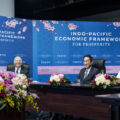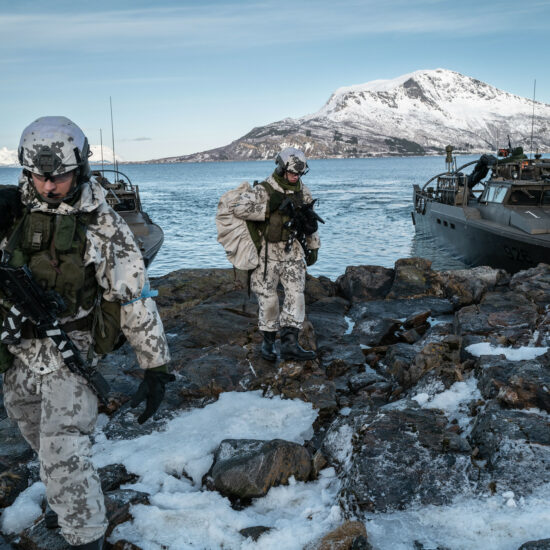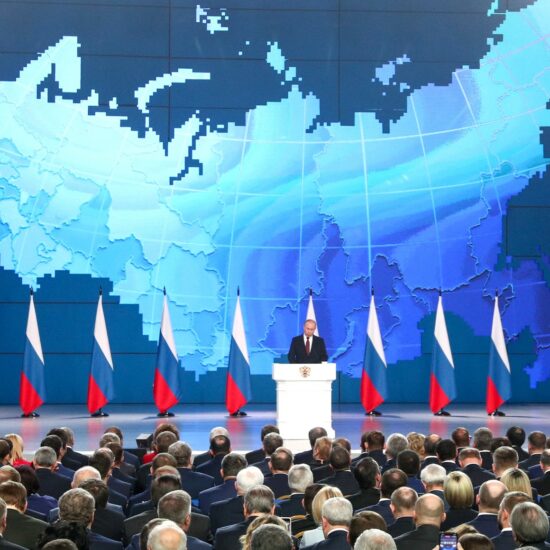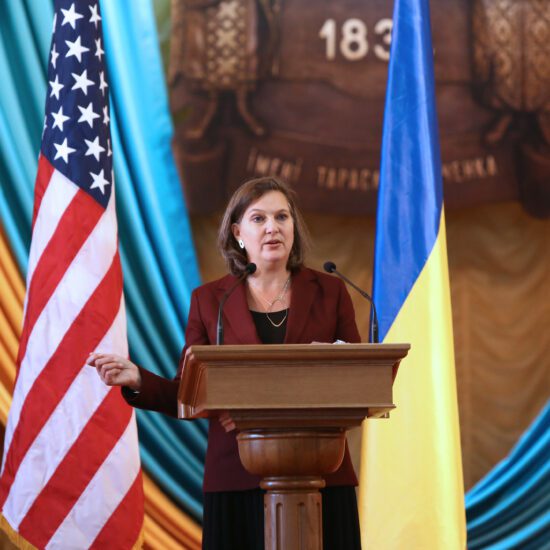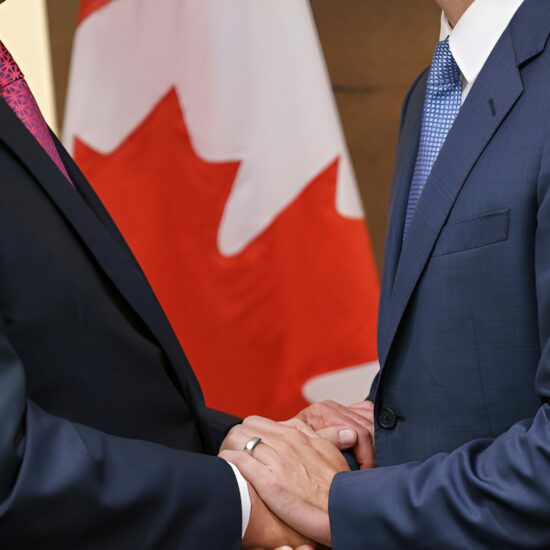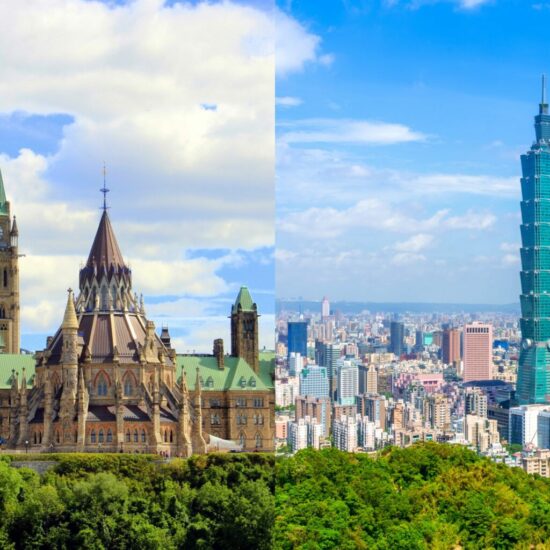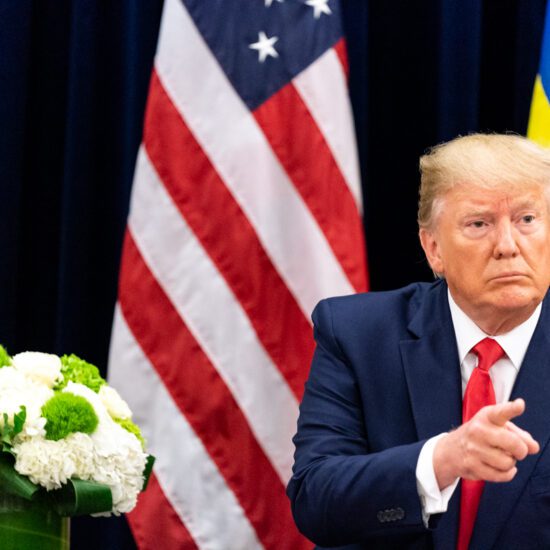
On December 8th, the Institute for Peace & Diplomacy (IPD) hosted a joint webinar titled, “Keeping the Skies Safe: Prospects for Global Cooperation” in collaborations with InterVISTAS. The virtual panel was held at 11:00 AM (ET) and can be watched on YouTube.
One year after the Safer Skies Initiative was launched by the Canadian government and following the work achieved at the Safer Skies Forum of December 2020, this webinar sought to reenergize the global discussion around the protection of civilian flight operations in and around conflict zones and how to best achieve progress on the Safer Skies commitments, which include the incorporation of risk management assessments and mitigation protocols at the level of national civil aviation authorities, and the implementation of ICAO conflict zone and airspace management-related Standard and Recommended Practices (SARPs).
To discuss the way forward and identify current challenges and opportunities, we have invited four distinguished and prominent experts who offered their views and insights from a diversity of perspectives. Topics for discussion included: (1) current challenges to progress on the Safer Skies Initiative; (2) current state of affairs at the level of ICAO; (3) challenges and opportunities to progress on the Safer Skies commitments; (4) the value of government-industry collaboration moving forward; (5) current and emerging threats to civil aircraft operations, as well as (6) best practices in the areas of risk assessment and mitigation protocols.
Panelists:
John Velho
Canada Lead on Safer Skies Initiative, and Director, Passenger Protect Program and Target Operations, Transport Canada
John Velho was appointed to the position of Director, Passenger Protect Program and Target Operations, Aviation Security, effective October 4, 2021.
Mr. Velho has 22 years of experience in the Government of Canada, and has held many positions in his 30 years with TC. He has occupied positions in different areas of the department such as in Programs, Corporate Finance, Rail, Marine, Multimodal Training and Aviation. Mr. Velho started his journey as a financial officer, before going on to hold many positions with increasing responsibilities, including Chief International Operations, where is was responsible for oversight activities in foreign states.
He has also worked with international organizations on different technical cooperation files, and represented the Government of Canada in different expert panels such as the International Civil Aviation Organization and the United Nations.
Mr. Velho has recently established a Conflict Zone Information Office (CZIO) as part of the Prime Minister’s Safer Skies commitment following the tragic downing of flight PS752, while standing up new programs within Aviation Security.
Nico Voorbach
Director ICAO Affairs, CANSO
Nico Voorbach started his career as a police officer in the Netherlands. In 1987, he became a Police pilot with the Dutch National Police. In 1992, he joined KLM Royal Dutch Airlines, where he was promoted Captain in 1993. At KLM, he flew the several aircraft types, ending his flying career on the Boeing 777 in 2016.
Nico has been involved from 1999 in the IFALPA Security Committee as Vice Chairman and Chairman, until 2010. Nico has been the Pilots’ representative for security matters in Europe and worldwide, with representation to the European Parliament and Commission, EUROCONTROL, IATA, ACI, NATO, and the ICAO AVSECP
In February 2011, he was elected as President of the European Cockpit Association (ECA), representing more than 38.000 pilots in Europe. Among others, during this time he represented the European pilots view on the tragic MH17 accident with the Dutch Investigation Board and the European Commission and European States.
Since 2016 Nico is the Director ICAO Affairs at CANSO. CANSO Members support almost 90 percent of world air traffic. Nico is be responsible for the management of the CANSO Montreal office and for the successful leadership and oversight of CANSO’s relations with ICAO. Nico is the CANSO Observer to the ICAO Council, the Air Navigation Commission and several ICAO Panels. He coordinates all inputs from CANSO and its Members to ICAO and its technical panels and working groups.
Matthew Vaughan
Director Aviation Security & Cyber, International Air Transport Association (IATA)
Matthew Vaughan is the Director, Aviation Security & Cyber (ACyS) for International Air Transport Association (IATA), based in Montreal, Canada. Matthew’s responsibilities include leading IATA’s international efforts on aviation security and cyber, whilst serving as the Secretary for Security Advisory Council (SAC), reporting into the IATA Board of Governors. Previously, Matthew worked for Etihad Airways, the National air carrier of the United Arab Emirates for over eight years of which he spent the last five years as the Head of Aviation Security.
Matthew has over 20 years security management experience drawing from law enforcement, Federal Government and private sector security roles. He has spent a large portion of his career thus far in the Middle East, both vocationally and academically developing interests in the utility of integrated risk models and continuity of civil aviation.
Drawing directly from his experiences with Etihad Airways, Matthew’s instinct towards supporting executive level risk decision-making continues to feature in view of an ever-evolving threat to civil aviation. In support of this, Matthew’s role with IATA is strategically premised on the promotion of baseline compliance to Aviation Security standards and recommended practices. Moreover, leveraging an all-hazards, risk-based approach through strategic threat analysis and business continuity planning in a high threat, high reliability industry.
Previously, Matthew worked as a New South Wales Police Force Constable (Sydney, Australia) which culminated into a national security management role with the Australian Government (Canberra, Australia). The balance of his government security career led towards to a national project management role with DHL Express and a consultancy role with GHD Pty Ltd based in both Kingdom of Saudi Arabia and Dubai, United Arab Emirates.
Matthew has a Master’s Degree in Science, majoring in Risk Management and Security. In addition, Matthew holds a Bachelor Degree in Policing and Justice and a Postgraduate Diploma in Criminal Intelligence, as well a number of aviation management and leadership qualifications.
Hany Bakr
SVP Aviation & Maritime Security, MedAire International An International SOS Company
Hany is an aviation professional that brings over 20 years of experience in the aviation industry, progressively holding executive leadership positions in various airlines, ICAO, and MedAire, an International SOS company. Hany led and navigated various aviation businesses in over 120 countries through some of the most dynamic environments in the world having worked in commercial, Heads of States, budget, charter, freighters, and business aviation operators. He held executive positions in airline operations, safety, quality, security, risk management and at the UN specialised agency ICAO.
In his capacity as Senior Vice President Aviation & Maritime Security with MedAire International, Hany is responsible for ensuring MedAire International’s aviation and maritime security risk management initiatives and support to the aviation industry remains at a cutting edge from strategic oversight to a forward-leaning innovation framework.
Before joining MedAire, Hany was most recently part of the ICAO Middle East team as Regional Officer Aviation Security and Facilitation. Prior to this, Hany was the Security Director Aviation Security & Maritime for International SOS, and was part of the executive leadership team of Qatar Airways as acting VP Group Security where he was accountable for all aspects of aviation and corporate security worldwide, ensuring the company’s 50,000 employees and operation in over 100 countries were operating safely through strategic and operational oversight and in compliance with national and international regulations.
Hany was the Chairman of the oneworld Alliance Security Group, Chairman of the Arab Air Carriers’ Organisation (AACO) Security Intelligence TaskForce, Chairman of the Qatar Airways Security Risks & Threats & Security Action Groups and a member of the International Air Transport Association (IATA) Security Executive Group representing 290 airlines ensuring capacity building, information sharing, global lobbying with local and international entities and authorities is achieved for the best interest of member airlines.
Moderator:
Marcelo Garcia
Senior Director, InterVISTAS Consulting
Currently Senior Director at InterVISTAS Consulting Inc., Marcelo has broad experience in policy and global advocacy matters in regulated industries. On the aviation front, he has worked with Canada’s Department of Transport – based in Ottawa, Canada – and with Qatar Airways’ aeropolitical and regulatory affairs – based in Doha, Qatar. He has advised airlines and industry associations on a wide array of legal and regulatory issues such as regional airspace disputes, international public air law, state subsidies, passenger rights, airline partnership agreements and air service agreements. He has also advised the Canadian government on airline joint ventures and competition law. Marcelo’s integrated approach to global advocacy has led him to coordinate and deploy market access efforts in Australia, India, Japan, Canada, Russia, Ukraine, Azerbaijan, Kazakhstan, South Africa, Kenya and Namibia, among others. He has also designed governance frameworks for airline programs such as new stations, airport incentives, and the management of foreign air operator permits. He holds a Master of Laws from McGill’s Institute of Air and Space Law in Montreal. He has also earned common law and civil law degrees from McGill University.

